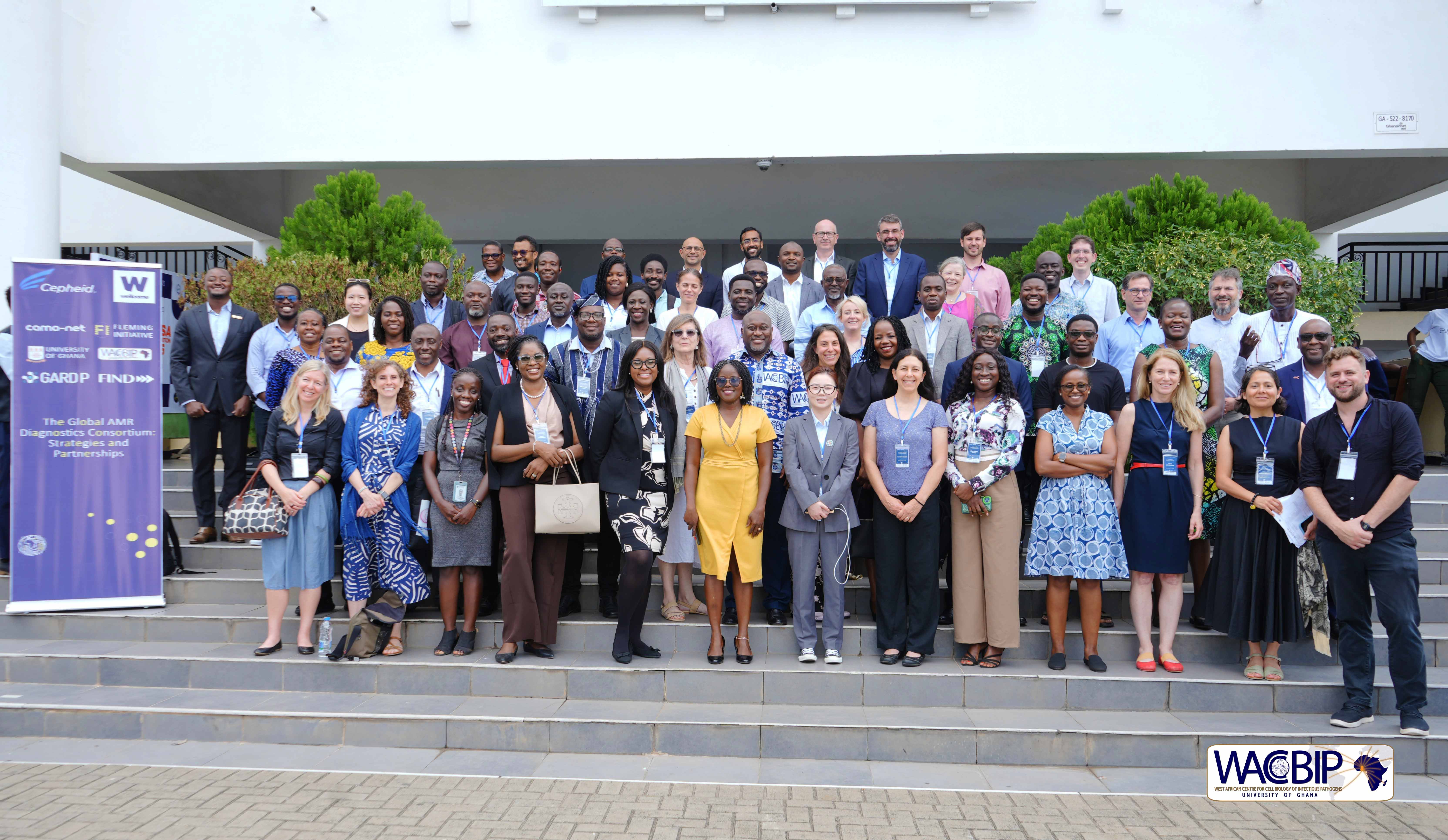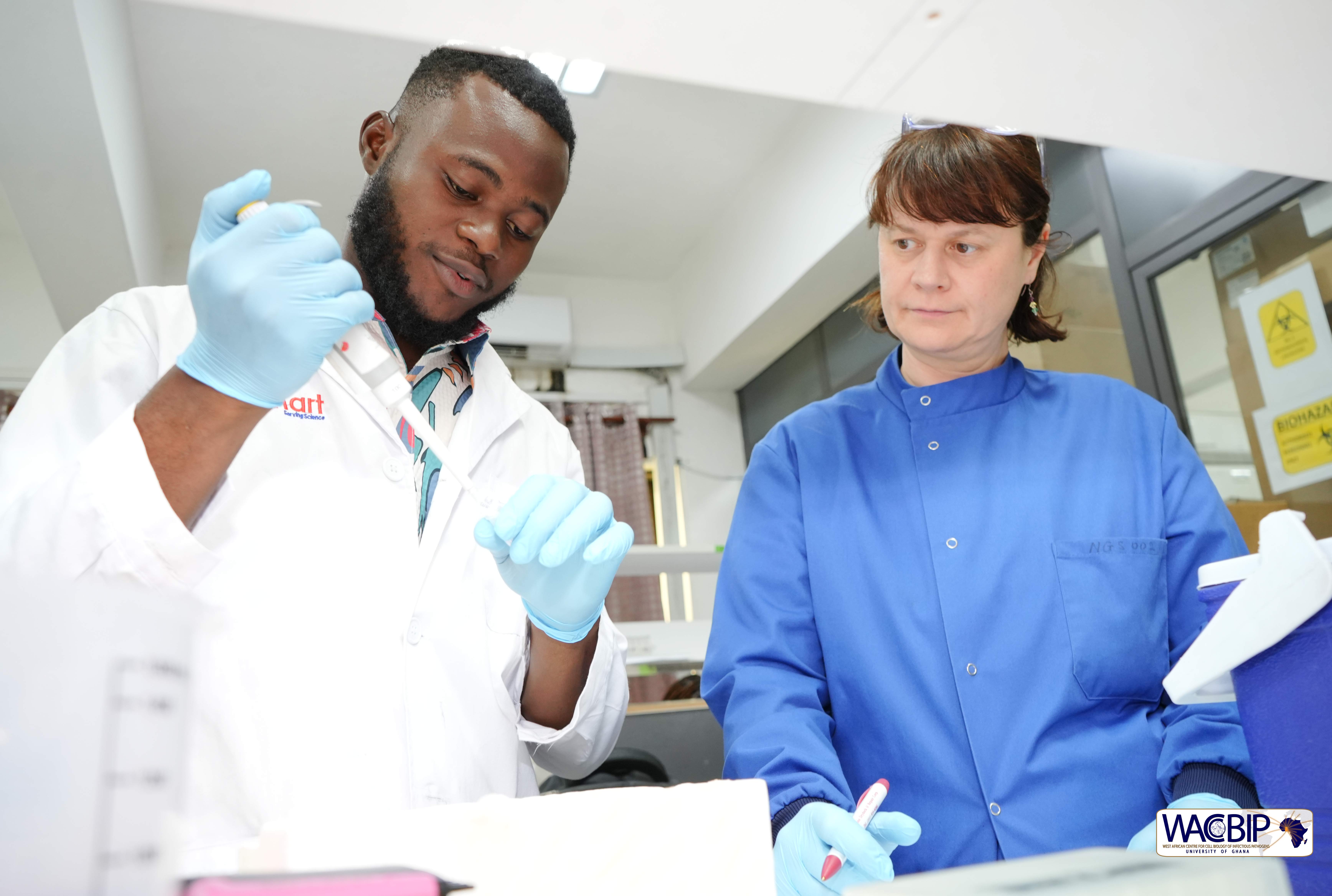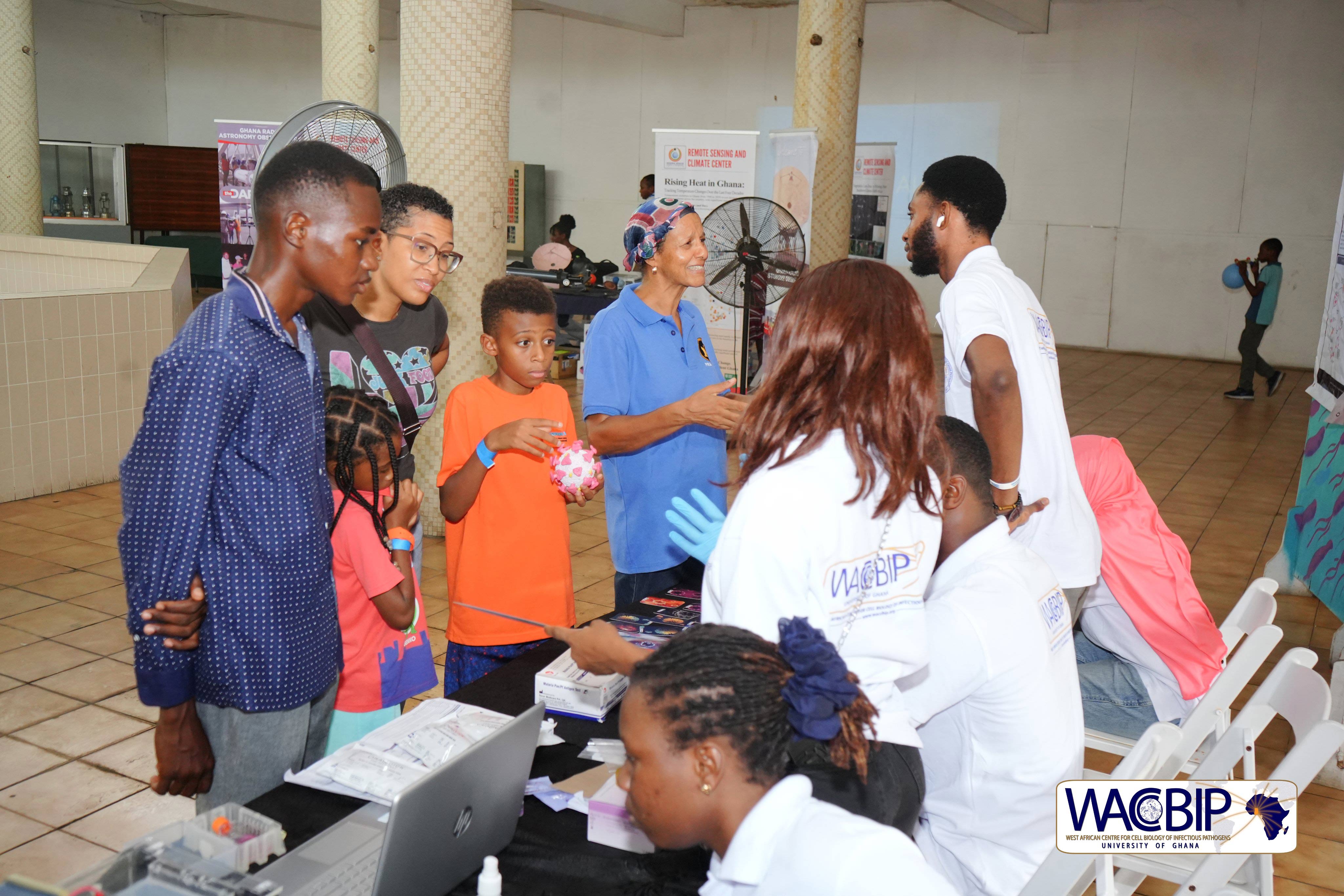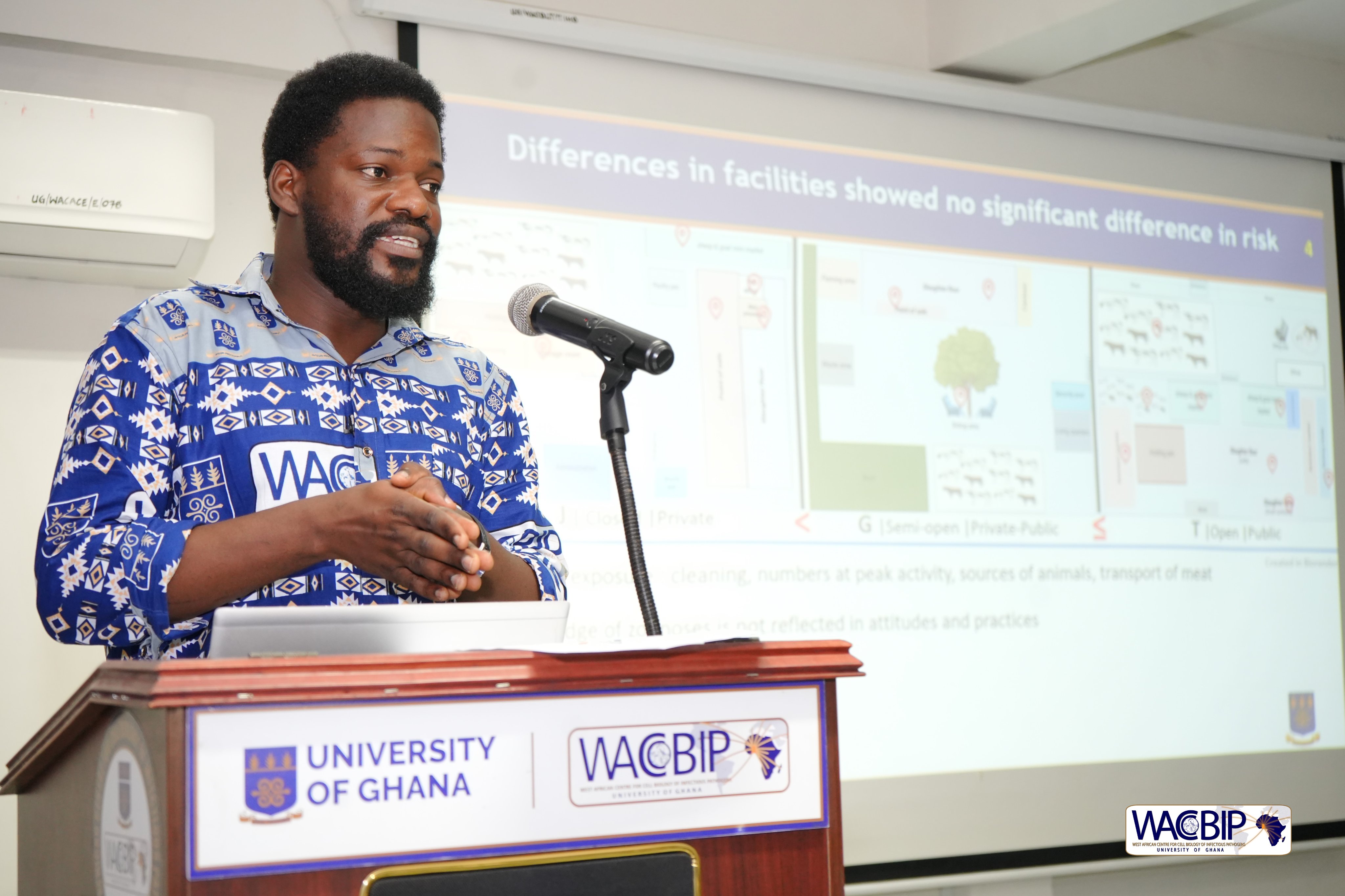Overview
The West African Centre for Cell Biology of Infectious Pathogens (WACCBIP) is one of the World Bank’s African Centres of Excellence (ACE) at the University of Ghana, led by faculty from the Department of Biochemistry, Cell and Molecular Biology (BCMB) and the Noguchi Memorial Institute for Medical Research (NMIMR) at the University of Ghana.
The Centre has a mandate to provide Master’s, PhD & postdoctoral training, as well as targeted short-courses in Cell & Molecular Biology, and to conduct applied research into biology and pathogenesis of tropical diseases, with the aim of increasing research and innovation by enhancing collaboration among biomedical scientists and industry leaders across Africa.
Our Story
In response to the World Bank’s call for proposals for African Centres of Excellence, the University of Ghana proposed the establishment of the West African Centre for Cell Biology of Infectious Pathogens (WACCBIP) at Legon. The proposal was led by faculty from the Department of Biochemistry, Cell and Molecular Biology (BCMB), and the Noguchi Memorial Institute for Medical Research (NMIMR), with support from staff of the University of Ghana IT Directorate (formerly University of Ghana Computing Systems).
After two rounds of evaluation, including review of the written proposal and a site visit to evaluate existing infrastructure and interview the project leader, the World Bank accepted the proposal for the establishment of WACCBIP in November 2013. Subsequently, the World Bank committed $8 million to support WACCBIP through a financing agreement with the Government of Ghana.
Since 2013, WACCBIP has grown into a leading centre of excellence, building global partnerships with world-class research institutions and funding organisations. Expanding our primary source of funding from the World Bank ACE project, we ensured prolonged sustainability of our programmes by securing additional funding from the Wellcome Trust DELTAS grant and additional grants mobilised by our faculty and collaborators.
We have invested heavily in recruiting some of the greatest scientific minds and have channelled significant resources into creating one of the best environments for the conduct of their scientific research. Prioritising world-class training, we have established our short-term, medium-term, and long-term training programmes, producing yearly cohorts of brilliant scientists at both master’s and doctoral levels.
WACCBIP will continue to channel our efforts towards building the infrastructure and the partnerships that will drive the scientific innovations of the future and help tackle the problems associated with infectious and non-communicable diseases in sub-Saharan Africa.
Our Vision
Our Mission
building capacity— providing a full training pipeline—from graduate internships, through Master’s and PhD programmes to postdoctoral mentorship fellowships;
creating an environment for high quality training & development of science leaders;
attracting talented African scientists in the diaspora to return home or build collaborations with scientists on the continent;
providing trainees with the skill-set for independent research in the peculiar research environment in Africa;
building a network of young scientists who would be bonded together through their training and will continue to collaborate as independent scientists; and health professionals
generating innovations in molecular diagnosis and drug/vaccine development through collaborations with sectoral partners from private sector;
supporting public health agencies with real time pathogen data for effective disease surveillance.
Our Structure
Governance
WACCBIP is a semi-autonomous academic unit in the College of Basic and Applied Sciences and is led by a Director, with two Deputy Directors, and assisted by the Centre’s Management Committee composed of senior academics, industry representatives and project management professionals
The Management committee has sub-committees for Training and Research, Equipment/Logistics, and Information and Communication Technology (ICT).
The Centre has an International Scientific Advisory Board (ISAB) comprising experts whose mandate is to provide sound and independent scientific advice on the scope of WACCBIP’s scientific objectives, and research outputs, strategic planning, financial sustainability, as well as assess WACCBIP’s contribution to public health both nationally and internationally
Faculty
WACCBIP’s teaching and research agenda is driven by faculty from the Department of Biochemistry, Cell and Molecular Biology and WACCBIP Research Fellows. Additional faculty are drawn from the and the Noguchi Memorial Institute for Medical Research.
The Centre also draws on other faculty from within the College of Basic & Applied Sciences and the College of Health Sciences for teaching and supervision of students. Regional and International collaborators also support the Centre through short teaching visits and co-supervision of students, including hosting students for experiential learning.
Secretariat
The WACCBIP Directorate is assisted by a Centre secretariat which has six main units, namely: Administration, Grants Management, Accounts, Communications and Public Engagement, Procurement and ICT.
There are other key project coordinators who run research units such as the Next-Generation sequencing unit, the West African Network of Infectious Diseases ACEs (WANIDA) project, Advanced Computing and Data Management.
Support staff and graduate interns for each unit help run the day-to-day activities of the Secretariat.





